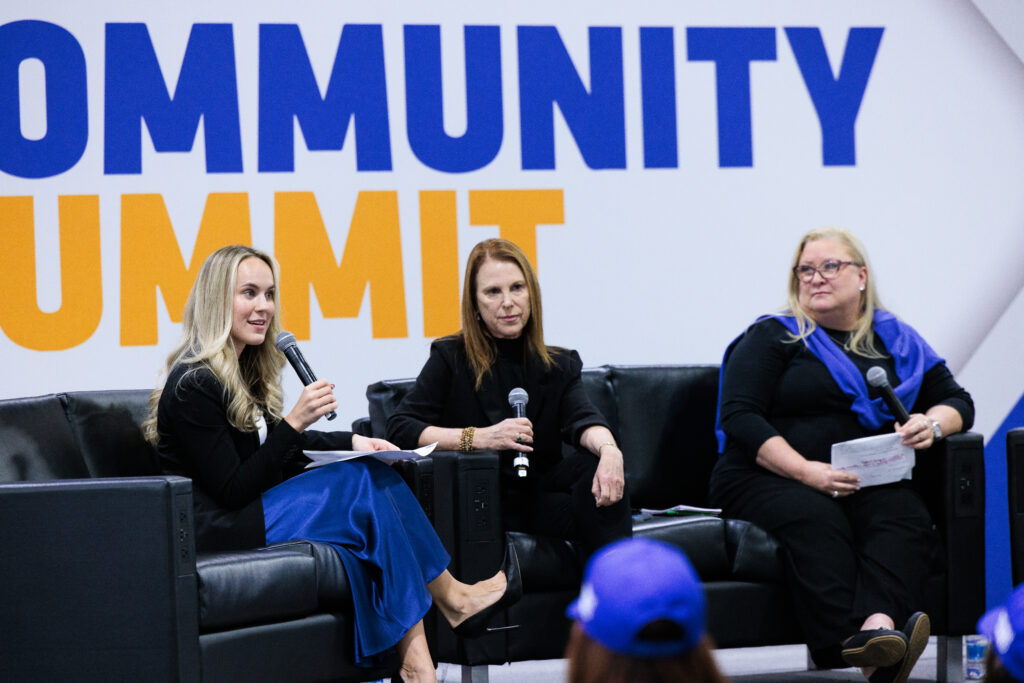At Community Summit North America 2023, I moderated the Women in Tech panel discussion which featured panelists Jennifer Harris, founder and CEO of TMC, Deb Pfundstein, global partner development manager at Vertex, and Aleksandra Kulu-Ainsworth, manager and functional consultant at Mazars.
In Part 1 of my Women in Tech session review, I shared my top takeaways from the Mentorship, Allyship, and Community pillar. While allies and mentors can lighten the weight of speaking up, finding confidence, and taking leaps in your career, you don’t need to be dependent on them to succeed.
In Part 2, I’ll review the pillars of Individual Growth and Personal Empowerment, which addressed soft skills and imposter syndrome.
Growing Your Soft Skills
Throughout your career, you will encounter a variety of scenarios. This could range from facing rejection to receiving tough — hopefully constructive — criticism to experiencing changes in your work environment. So, it’s important to independently grow and know how to play to your own strengths. Being equipped with soft skills can be valuable when navigating these situations.
Active listening and communication are two skills that Deb suggested sharpening. She explained that “not knowing can sometimes be the difference between winning and losing” so that’s why it’s important to ask, “What didn’t I ask you that I should have? What piece of information during our conversation has not been uncovered? That is vital for us to be able to move forward.” Deb reported having uncovered so much that she wouldn’t have otherwise known by asking these questions.
Aleksandra described how she should be respected not just for her age or gender but for her skills, abilities, and work ethic. She highlighted adaptability and ownership as skills to hone. Adaptability can open new doors for new experiences you might not have expected. Ownership and attention to detail can enable you to deliver greater quality work that you will be proud of.
Needing these skills isn’t necessarily just for women. Jennifer touched on how both men and women “get to the same end result…respecting each other and how we do it is key.”

Overcoming Imposter Syndrome
Many women likely have more skills in their pocket than they realize and may even have more qualifications than they realize. But, despite holding all these skills and qualifications, many women still have doubts about their abilities. This is commonly referred to as imposter syndrome, which can create barriers to professional success.
More specifically, the National Library of Medicine defines imposter syndrome as “a behavioral health phenomenon described as self-doubt of intellect, skills, or accomplishments among high-achieving individuals.” Aleksandra noted that imposter syndrome “is not one-size-fits-all…recovering or overcoming imposter syndrome can be a challenge for many.”
She continued, “We’re not frauds in our work, but it is okay to have a little self-doubt at times.” Mindset is a huge part of overcoming imposter syndrome. “I try and reframe things in a realistic tone — I don’t have to climb Mount Everest tomorrow.” It can be challenging when you have high expectations for yourself but “a little self-compassion can go a very long way.” She promoted “being positive and celebrating those little milestones — any victory is a victory.”
“When you’re the only one in the room, you feel like you don’t belong there,” Jennifer acknowledged. It’s easy for women to slip into a “perfectionist” mindset and “have a belief system that we don’t believe until we achieve.” This can hold us back from taking risks and even failing forward.
Jennifer advised, “The way to get around this is to talk about your accomplishments and remind yourself of what you’ve done.” Ironically, “it tends to be the more high-achieving people” because, as you climb up the ladder, you may enter rooms that you feel like you don’t belong in. She reminded attendees, “You can do it, or you wouldn’t be in this position.”
“Knowing that there is opportunity, and seeking that risk — you may fail, but you don’t learn if you’re not failing,” Deb said, recounting that she can’t name a single person who can say, “I have never failed at anything.” She continued, “Every single time you learn something, you exceed, going beyond [what you could previously do].” She advised women to be open to learning from mistakes. Impostor syndrome is something that “affects every in every role across the world.”
Comparison is another factor of imposter syndrome. It’s so easy to compare yourself to others and think “they have more experience than me” or “that person can do something better than me.” Overcoming this is all about having a mindset shift by reframing your thoughts: “I have different experiences” and “I bring something different to the table.” While comparison can be defeating, building a habit of reminding yourself that you are qualified to be where you are can help with overcoming imposter syndrome.

Building the Future of Women in Tech
The analogy “life is like a race” can be applied to professional journeys. However, life is not a sprint — it’s a marathon and so is your career. While I am no runner, I do know that when training for a marathon, you don’t approach it like a sprint. It’s all about endurance and not speed — just like Aleksandra said, “I don’t have to climb Mount Everest tomorrow.”
You have time, regardless of where you are in your career, to continue building your skills. Taking advantage of educational and professional opportunities can propel you further so you can reach the finish line of your career goal.
“We need to invest in ourselves find educational opportunities to improve our careers and move forward,” Jennifer said. Deb advised women to evaluate what they want to accomplish and determine what they want to better understand, especially in the tech industry. You can rely on employee resource groups, attend professional conferences, and gain information from committees and networks, Aleksandra proposed.
Having these resources and opportunities serves as a stepping stone for women to continue entering and moving up in the technology field. As women invest in themselves to advance in their own careers, they’re also paving the way to empower future generations of women in tech.







